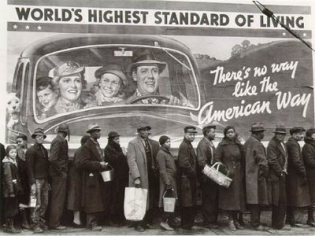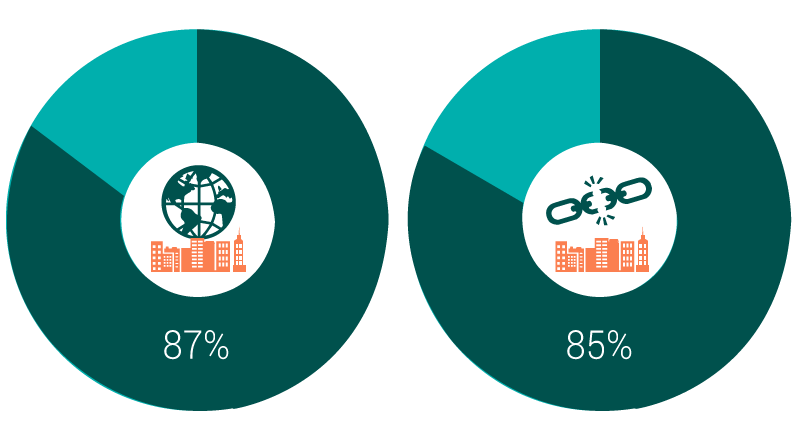Consumerism
What is "Consumerism"?
Consumerism is the belief that personal wellbeing and happiness depends to a very large
extent on the level of personal consumption, particularly on the purchase of material
goods. The idea is not simply that wellbeing depends upon a standard of living above
some threshold, but that at the center of happiness is consumption and material
possessions.
How do "Consumerists" view society?
A consumerist society is one in which people devote a great deal of time,
energy, resources and thought to “consuming”. The general view of life in a consumerist
society is consumption is good, and more consumption is even better.

The origins of Consumerism
Consumerism has weak links with the Western world, but is in fact an international phenomenon. People purchasing goods and consuming materials in excess of their basic needs is as old as the first civilizations (e.g. Ancient Egypt, Babylon and Ancient Rome).

The origins of Consumerism
A great turn in consumerism arrived just before the Industrial Revolution. In the nineteenth century, capitalist development and the industrial revolution were primarily focused on the capital goods sector and industrial infrastructure (i.e., mining, steel, oil, transportation networks, communications networks, industrial cities, financial centers, etc.).
Consumerism in today's society
Beginning in the 1990s, the most frequent reason given for attending college had changed to making a lot of money, outranking reasons such as becoming an authority in a field or helping others in difficulty. This correlates with the rise of materialism[citation needed], specifically the technological aspect: the increasing prevalence of compact disc players, digital media, personal computers, and cellular telephones. Madeline Levine criticized what she saw as a large change in American culture – “a shift away from values of community, spirituality, and integrity, and toward competition, materialism and disconnection.”

87% people in BRICS nations believe that buying branded commodities expands their worldview whereas 85% believe it increases their freedom

Catalysts for Consumerism
Emulation is a core component of 21st century consumerism. As a general trend, regular consumers seek to emulate those who are above them in the social hierarchy. The poor strive to imitate the wealthy and the wealthy imitate celebrities and other icons. The celebrity endorsement of products can be seen as evidence of the desire of modern consumers to purchase products partly or solely to emulate people of higher social status. This purchasing behavior may co-exist in the mind of a consumer with an image of oneself as being an individualist.
Some problems of consumers exploitation:-
- Pricing
- Adulteration
- Duplication
- Artificial demand
- Ignore standard
- Advertising
- Product risk
- Warranty and services

Why consumers buy more
- Addiction
- Identity
- Lifestyle
- Save money as promised by the markets

Why companies try to sell more and more :-
- To gain from economy of scale
- It costs less to retain a customer than to capture a new one

CONSUMERISM IN INDIA:
India is one of the largest and fastest growing economies in the world. The consumer’s standard of life is going higher and hence his needs are escalating as well. Consumerism in India, is in a new high, and refuses to show signs of budging anymore. The Indian consumer, due to his exposure, of the global market, strives to get the best of the goods in his home land.
The retail sector- both organized and unorganized, strive hard to cater to the vast range of the Indian consumers. The retail sector in India, with its present pace, is expected to grow at a rate of 25%- 30% annually.
Being the fifth largest retail industry in the world,
the trends of the retail industry in India is quite remarkable. The consumer group can literally be divided into three clear groups:
-
The first group comprises of consumers who are extremely brand conscious and depend upon the high end retail stores to satisfy their needs

2. The second group is another extreme who satisfy their consumer needs from outlets that do not hold popular brands and are also much cheaper;
3.The third group however follows the middle path- they satisfy their consumer needs either from high end retail outlets or the less popular retail outlets, as and when necessary.

The Indian retail industry gives an opportunity to everybody to shine- whether they are family stores, or departmental stores, or convenience stores, e-tailers, or malls or specialty stores- such is the varied range of consumers in India.
The growth of India in the economic sector has resulted in Indians willing to invest in a life of luxury. Such a wish is the major cause behind India’s growing consumerism and retail trends.
Rights of consumers
- Right to be informed
- Right to safety
- Freedom to choose
- Right to consumer education
- Right to claim against seller
- Right to secure ecological balance and pollution-free environment

Consumer responsibilities
- Critical awareness
- Action
- Social responsibility
- Environmental awareness
- Solidarity
Effects
of
Consumerism
A connection between globalization and consumerism could be established within the
domain of three main factors which are
- Access to resources and markets on a global basis
-
Production of consumers all over the world with an extensive range of products
and services that were not easily available before
-
Central and fundamental understanding of globalization and the modern world
being the notion of “consumerism”
Within this context, there are trends that
have been identified around globalization and consumerism which have made consumerism an issue at present (Shah, 2006). Some of the trends of present consumption are:
1.Inequality of consumption (not redistributing from high-income to low-income
consumers)
2.Use of pollutant goods and production technologies instead of cleaner ones
3.Promoting goods that discourage poor producers rather than promoting goods to
empower poor producers
4.Creating a priority among consumers for consumption to conspicuous display
rather than to meeting basic needs
Consumerism
By Namit Juneja
Consumerism
- 1,020



